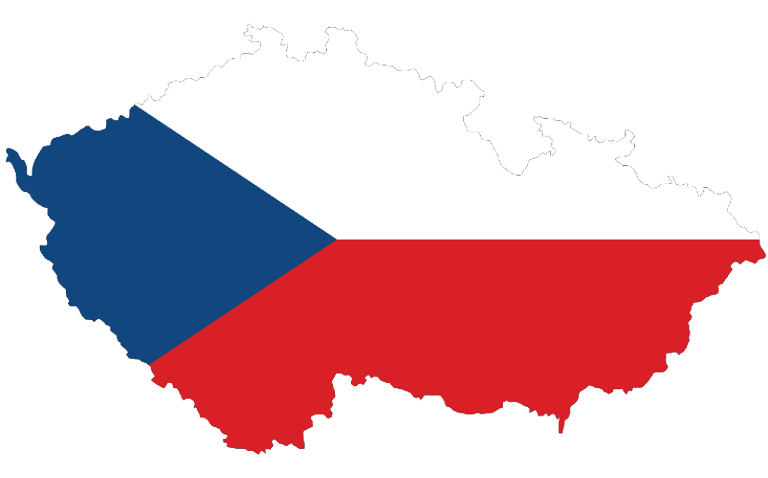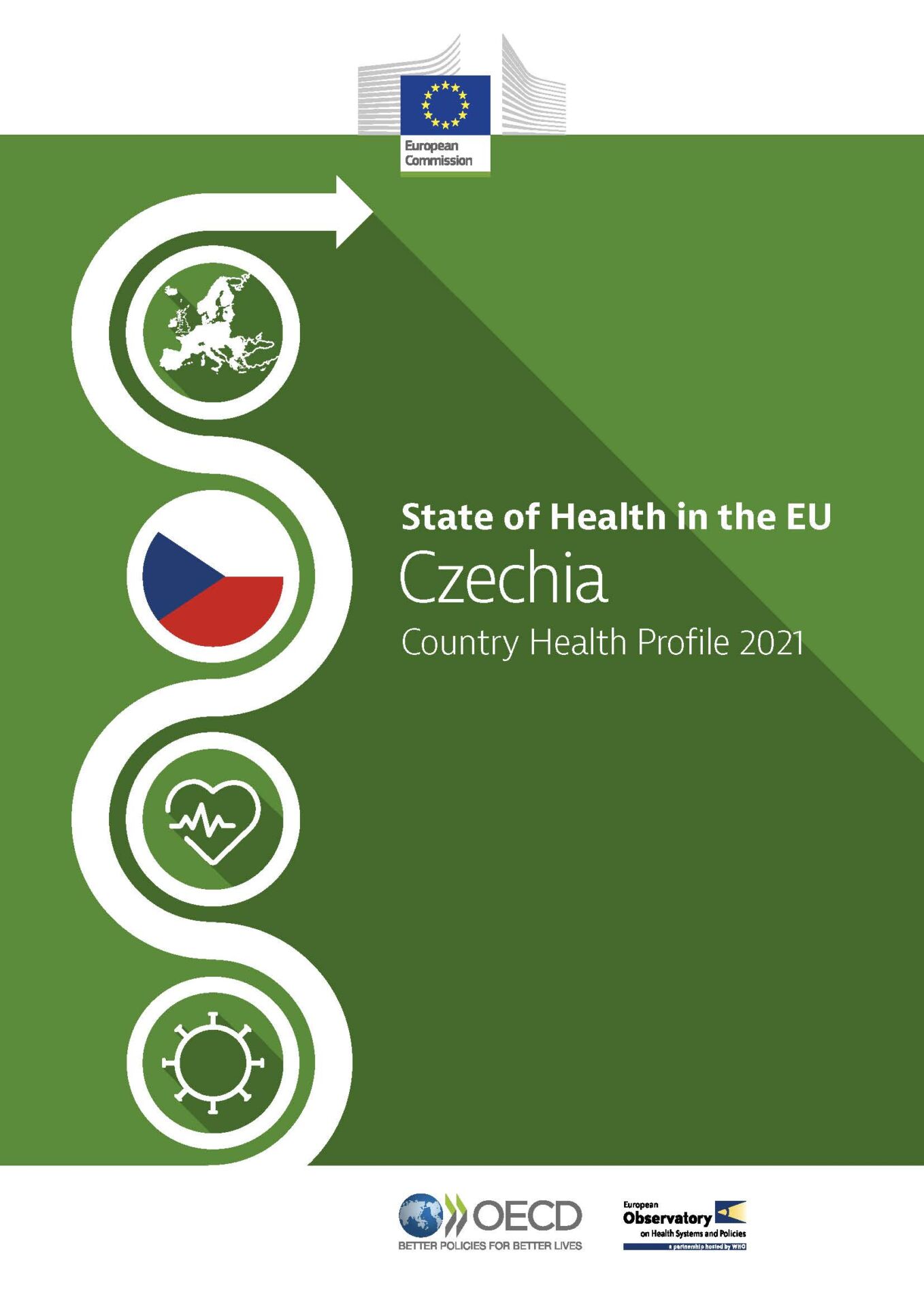Although Czechia spends considerably less on health than most other EU countries, its health system provides a broad benefits package and reported unmet needs for medical care are low. In 2020, life expectancy in Czechia was more than two years below the EU average, after the Covid-19 pandemic led to a temporary reduction of one year compared to 2019.
The pandemic response highlighted areas for improvement in crisis preparedness and workforce capacity, especially in some regions. The financing decisions made during 2020 alleviated the short-term financial pressure on the system.
Czechia’s health status
Life expectancy in Czechia steadily improved over the last 10 years and in 2019 was two years below the EU average. However, the Covid-19 pandemic temporarily set the country back to 2013 levels – a larger impact than in many other EU countries.
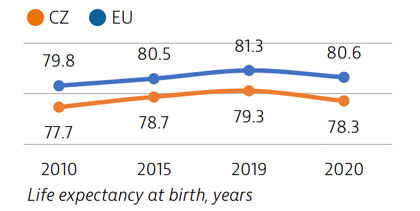
Risk factors
Nearly half of all deaths in Czechia in 2019 could be attributed to behavioural risk factors – particularly poor diet, smoking and alcohol consumption. Obesity rates have steadily increased over the past 15 years and are now around 20% for adults, contributing to high prevalence of diabetes and other diet-related diseases. Alcohol consumption is among the highest in the EU.
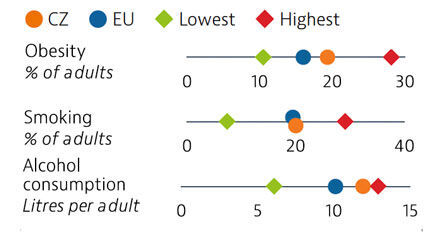
Czechia’s health system
Czechia’s health expenditure in 2019 was 7.8% of GDP and €2,362 per capita – both substantially below the EU averages (9.9% and €3,521). Most health expenditure is financed from public sources, predominantly through the compulsory insurance system. Czechia significantly increased contributions from the state budget into the insurance system to cover almost all pandemic-related expenses.
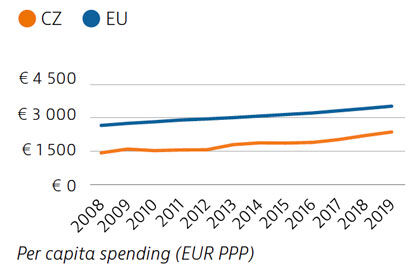
Effectiveness
Despite steady decreases over the past decade, Czechia still had relatively high levels of preventable and treatable mortality before the pandemic. Additional investment in public health interventions and in incentivising healthier habits among the population could help achieve further progress. Cancer survival rates are now close to the EU average, but Covid-19 led to a temporary drop in activity such as screening, which could set back this advance.
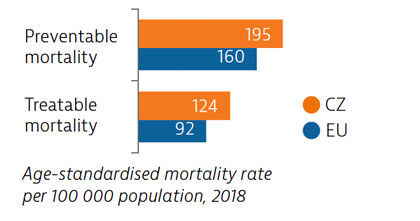
Accessibility
Prior to 2020, Czechia had one of the lowest levels of unmet needs for medical care in the EU, although some informational barriers to care existed. During the first wave of the pandemic, health services were less disrupted than in the EU overall (16% of Czechs reported having forgone medical care).
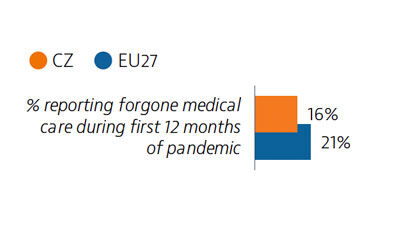
Resilience
Czechia contained the first Covid-19 wave but struggled to slow down the second wave, partly due to limited planning capabilities and insufficient clarity in its public communication. By the end of August 2021, 16% of the population had been diagnosed with Covid-19 (compared to 8% across the EU), while over half of the population (53%) had been vaccinated with two doses (or equivalent).
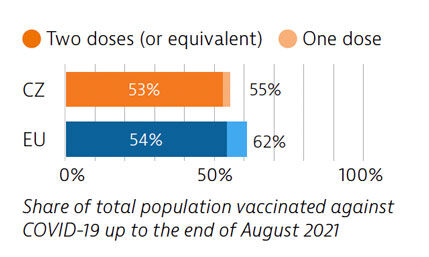
OECD/European Observatory on Health Systems and Policies (2021), Czechia: Country Health Profile 2021, State of Health in the EU, OECD Publishing, Paris/European Observatory on Health Systems and Policies, Brussels.



